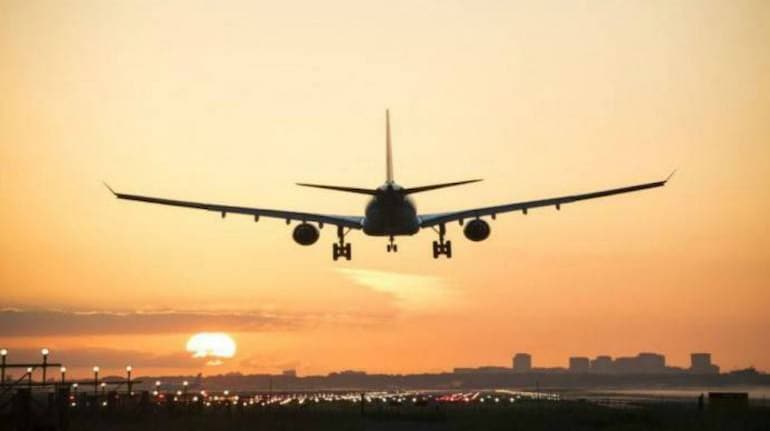



Most countries and entities dealing with the Indian government since 2014 have realised by now that it is difficult to extract a favourable decision unless it is beneficial from India’s perspective. This is true even for bilateral seat entitlements for foreign airlines operating services to and from India. The policy pursued by the Narendra Modi government since 2014 has reflected a total change from the one followed by the UPA dispensation in the preceding decade.
Foreign airlines, through their respective governments, then managed to not only extract disproportionate additional seat entitlements but also access to more and more Indian cities. This helped them funnel traffic from Indian cities to their respective hubs for onward transportation of passengers to various destinations in Europe and the US. Most carriers in the Gulf and South-East Asia can attribute a major part of the growth achieved by them to the strength of the Indian market. So much so that with the market share that Emirates commanded a few years ago, it came to be dubbed as India’s national carrier.
Foreign Airlines Gain
The Indian skies became dominated by carriers that did not even exist when JRD Tata gave India a head-start by commencing international services in 1948. Yet, policymakers were not spurred to take corrective action. The government of the day sought the easiest way out to meet the rising demand. It allowed rapid growth of capacity available without a care about who was providing or what consequences it could have on the Indian aviation industry in the long run. If the government did formulate any grandiose plans, it invariably failed due to shoddy implementation.
The Modi government, on the contrary, has been restrictive, not entertaining requests recklessly because it wants Indian carriers to utilise the Indian part of bilateral agreements. This has naturally resulted in a growth of Indian carriers’ share of international travel from India in recent years, albeit not at an impressive pace. This achievement though confined to destinations in the country’s neighbourhood like the Gulf and South-East Asia, and rather than long-haul destinations, is due to both the encouragement given by the government and also increasing eligibility of Indian airlines to fly abroad. Only Akasa Air is waiting to fly abroad.
That seat entitlements are not being increased periodically like in the previous decade has naturally peeved some of the foreign airlines. On the sidelines of an aviation event in Delhi recently, participating CEOs expressed their frustration in interaction with the media. Turkish Airlines CEO stated: “There was nothing wrong in a country framing its own policy but too much protectionism discourages competition and hurts consumers.” Likewise, Emirates CEO said, “If you don’t expand capacity, the losers will be the Indian citizens and carriers.”
While there is an element of truth in both statements but what went unsaid and was the real cause of such assertions was that the loss for these airlines due inability to grow on the strength of the burgeoning Indian market is much greater. Another aspect generally overlooked is that the Indian aviation industry is today significantly different from what it was more than a decade ago though one would have wished that there were more Indian carriers with plans to fly on the long haul sectors because most foreign airlines are seeking additional seats primarily to exploit the Indian market for sixth freedom traffic - flying passengers beyond their country.
Change Of Policy
The million-dollar question is will the Modi government relent as the market regains its full potential post-Covid? Very unlikely. Even if ensuring exploitation of India originating/bound traffic may not have been part of the government’s Aatamnirbharta plan, the Centre does appear inclined to protect Air India, as is being alluded to by foreign airlines. The question is not whether there is anything wrong in doing so or whether the government feels obliged to as Air India was till recently a government-owned airline but because Air India along with other Indian carriers needs to aggressively spread their network and be the major beneficiary of India’s growth story. The mega order of 470 aircraft, including 70 long-haul aircraft, placed by Air India a few months ago will only help translate this desire.
The government, while assessing demand-capacity balance, shouldn’t thus fall prey to criticism, lobbying and media pressure but remain steadfast because the first right on India originating traffic should vest with Indian carriers. If foreign airlines were allowed a free run of the Indian skies in earlier years, it was because Indian carriers then lacked the ability to mount services at a pace at which the market was growing.
To the critics of the policy, one can only aver that the potential for sustained growth of foreign airlines from the Indian market can only be incidental but ensuring the growth of Indian carriers will, and should, remain the prime responsibility of the government. When Indian carriers grow, employment opportunities for pilots, cabin crew, aircraft maintenance engineers and technicians are created for youth in India, which isn’t the case when foreign airlines grow; and employment is indeed a priority area for the government.
Achhe din for Indian aviation to grow and prosper exist provided Indian carriers seize the opportunity and expand their network, which should include long-haul sectors, thus far being exclusively served by Air India and Vistara amongst Indian carriers.
Jitender Bhargava is former executive director of Air India & author of The Descent of Air India. Views are personal and do not represent the stand of this publication.
Discover the latest Business News, Sensex, and Nifty updates. Obtain Personal Finance insights, tax queries, and expert opinions on Moneycontrol or download the Moneycontrol App to stay updated!
Find the best of Al News in one place, specially curated for you every weekend.
Stay on top of the latest tech trends and biggest startup news.